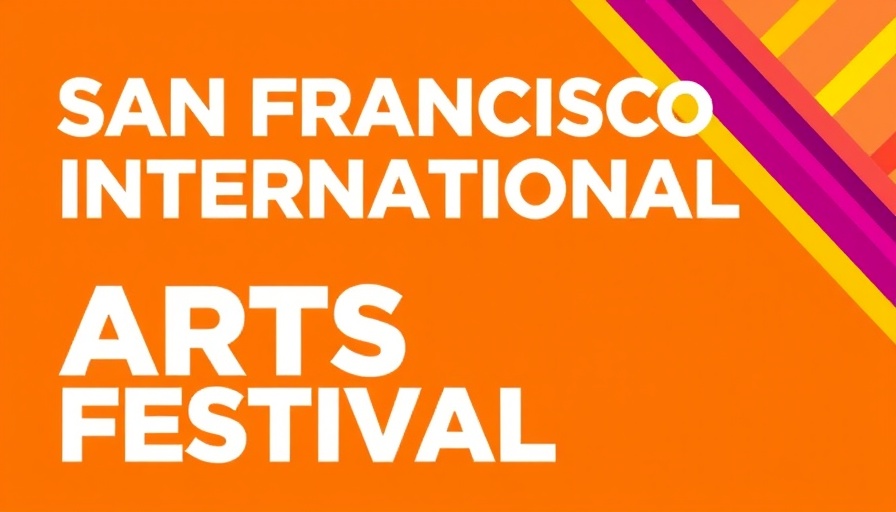
Unpacking the Fallout: NEA Grant Cancellation Impacts Arts Community
Just as the curtains were set to rise at the San Francisco International Arts Festival (SFIAF), an unexpected blow was dealt to the arts community: a $20,000 grant from the National Endowment for the Arts (NEA) was canceled mid-program. This decision, stemming from directives signed by former President Donald Trump, has left many questioning the impact on artistic expression and funding for the arts across the nation.
Timing Is Everything: The Conflict of Grant Policies
The timing of the grant's withdrawal could not have been worse. Artists from around the world, including the Australian Theatre Company, Fairly Lucid Productions, were readying themselves to showcase their work at SFIAF when they received the abrupt news via automated email. The grant in question, awarded back in November 2024 under previous guidelines, became a casualty of newly imposed funding priorities.
In the communication sent out by the NEA, it was stated that awardees had to align with the current Administration's aim of highlighting projects reflective of the nation’s “artistic heritage.” This abrupt shift in priorities raises concerns about the ability of organizations to navigate a landscape increasingly influenced by political considerations.
The Broader Implications of Arts Funding Changes
Festival Director Andrew Wood expressed his determination not to back down from the festival's commitment to presenting diverse artistic perspectives. “Trump will not stop us,” he declared. His words underscore a vital point: that the arts are a reflection of society's values and struggles and should not be suppressed because of political pressures.
Wood continued to articulate how these changes reflect a broader assault on democratic institutions and First Amendment rights, particularly within the arts. The abrupt termination of this grant illuminates a pervasive fear among artists: that their expressions and explorations may be stifled if they do not conform to the current administration's ideals.
Resilience of Art: A Play Born from Struggle
Adding an intriguing layer to the festival narrative is the story behind Fairly Lucid Productions’ performance, titled MEMBER. This poignant play focuses on the historical plight of gay men in Sydney during the 1970s and 80s, specifically the determined fight of American Scott Johnson’s family to seek justice for his murder—a reflection of resilience and the quest for truth. This narrative not only honors the memory of an American family but also typifies the broader fight for justice and rights, resonating deeply with the current state of the arts.
The cancellation of the NEA grant raises a critical question: what happens when political ideologies threaten artistic storytelling? Just as Johnson's family pushed for systemic change, so too must the arts community advocate for their right to exist without fear of political retribution.
Fighting Back: Arts Community's Response to Political Pressure
The interference from the government is indeed alarming, but Wood’s resolve signals hope among artists. By uniting with others in the arts and beyond, he believes that together they can resist and advocate for a more inclusive artistic community that reflects true societal values. The SFIAF persists despite these setbacks, showing that art prevails even in the bleakest of circumstances.
The future of arts funding remains uncertain, but gatherings like the SFIAF reaffirm that artistic expression is a resilient form of resistance. In turning the spotlight on marginalized stories and communities, the festival pushes back against narratives that seek to silence.
Conclusion: The Resounding Value of Artistic Expression
As we witness the withdrawal of this grant, the festival's determination to continue is not just about one performance; it’s about championing the right to artistic freedom. In a landscape of change, the arts need to be more than a fleeting moment—they must remain an enduring voice in our society.
 Add Row
Add Row  Add
Add 




Write A Comment